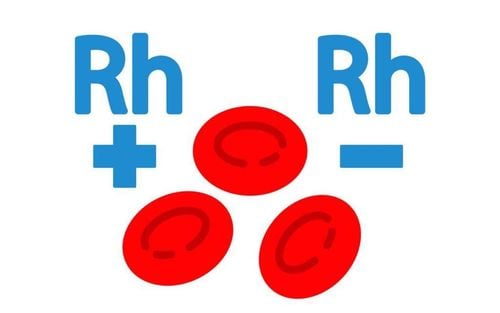This is an automatically translated article.
During pregnancy, you expect your body to go through many obvious changes, such as larger breasts and a larger belly. What you may not know is that your vagina also goes through changes. And how to keep the intimate area healthy during pregnancy.1. Vaginal changes during pregnancy
If you know what's normal for your vagina during pregnancy, you'll be more likely to experience potential complications. Here are some ways your vagina is affected during pregnancy:1.1. Vaginal discharge Increased vaginal discharge is one of the most noticeable vaginal changes during pregnancy. This is due to high levels of estrogen and progesterone. An increase in blood volume and blood flow can also contribute to increased vaginal discharge.
Discharge from pregnancy must be thin, white and milky. It may become heavier as your due date comes in. It shouldn't have a bad smell, but may have a more noticeable mild odor than before. If vaginal discharge bothers you, try wearing unscented underwear or mini pads.
1.2. Increased risk of vaginal infection In some cases, increased vaginal discharge indicates an infection. Vaginal infections are common during pregnancy, in part due to hormonal changes that alter the pH balance of the vagina. Common vaginal infections during pregnancy include:
Yeast infections: During pregnancy, vaginal discharge contains more sugar, you should choose a meal of yeast. A yeast infection won't harm your unborn baby, but it will make your life uncomfortable. Symptoms of a yeast infection include vaginal itching, vaginal discharge that resembles cheese and has a yeast odor, and vaginal burning.
Bacterial vaginosis (BV): According to the American Pregnancy Association, 10 to 30 percent of pregnant women will develop bacterial vaginosis. This condition is caused by an imbalance of good and bad vaginal bacteria. The main symptom of BV is a gray discharge with a fishy odor. Untreated BV is associated with preterm labor, low birth weight, and miscarriage.
Trichomoniasis: This infection is transmitted by having sex with an infected person. It can cause serious pregnancy complications, such as premature rupture of membranes and premature birth. Symptoms of trichomoniasis include a foul-smelling yellow-green discharge, vaginal itching and redness, and pain with urination and sex.
1.3. Increase Vaginal Swelling To support your growing baby, your blood flow increases dramatically during pregnancy. It's not uncommon for your labia and vagina to appear swollen and feel fuller. The swelling and increased blood flow can also increase your sex drive and make you more likely to feel aroused. Hormonal changes and increased blood flow can also make your vagina and labia darker and bluish.
In some cases, vaginal swelling is caused by an infection. If vaginal swelling is accompanied by redness, burning, and itching, contact your doctor.
1.4. Your legs are not the only place where varicose veins can appear during pregnancy. They can also occur in your vulva and vaginal area. Vulvar varicose veins are caused by increased blood volume and decreased blood flow from your lower extremities.
Vulvar varicose veins can cause pressure, bloating, and discomfort in the vulva and vagina. You can help relieve symptoms by applying cold packs, elevating your hips while lying down, and wearing compression clothing. Most vulvar varicose veins go away on their own within a few weeks of giving birth.

Khi mang thai, mẹ bầu sẽ nhận thấy vùng kín của mình có nhiều sự thay đổi
Vaginal bleeding in your second and third trimesters is worrisome. You should seek emergency medical attention if your vaginal bleeding is caused by:
Placental abruption (when the placenta separates from the lining of the uterus) Premature cervical dilation Preterm labor Preterm labor Uterine rupture When As labor begins, you may notice vaginal discharge mixed with pink mucus. This is normal and is called a bloody show.
2. Instructions for cleaning the birth area during pregnancy
It is important to keep the intimate area clean during pregnancy because this area is prone to irritation and itching due to hormonal changes.Pregnancy is a time when every part of a woman's body needs special care and attention, especially hygiene. Pregnancy hormones cause acidic changes in the vaginal area, and due to hormone changes the area is prone to irritation and itching, increasing discomfort, so it's important, experts say. must keep the vaginal area clean regularly.
Subhashini N.S, Natural Product Innovation, R&D at Himalaya Pharmaceuticals says it's important to prevent skin irritation in the intimate area and avoid the risk of serious infections during pregnancy and after delivery. . According to her, the balanced pH in the vagina should be between 3.5 and 4.5 to prevent bacteria from growing in and around this area.
Here are some intimate hygiene tips during pregnancy:
Choose products that are enriched with natural ingredients like tea tree oil and pongamia oil. Tea tree oil and pongamia oil are effective in preventing itching and irritation in the intimate area. Pongamia oil is beneficial in maintaining a healthy vaginal flora and has antibacterial properties. For convenient personal hygiene, use natural intimate wipes enriched with Lavender essential oil. Lavender oil soothes and helps eliminate odors while maintaining freshness. Mothers who work and travel often can use natural intimate wipes for convenient personal hygiene. Hema Divakar, Consultant Obstetrician and Gynecologist, suggests these simple hygiene tips to reduce the risk of vaginal infections:

Vệ sinh vùng kín cho bà bầu là việc cần lưu ý để đảm bảo sức khỏe mẹ và bé
Please dial HOTLINE for more information or register for an appointment HERE. Download MyVinmec app to make appointments faster and to manage your bookings easily.













